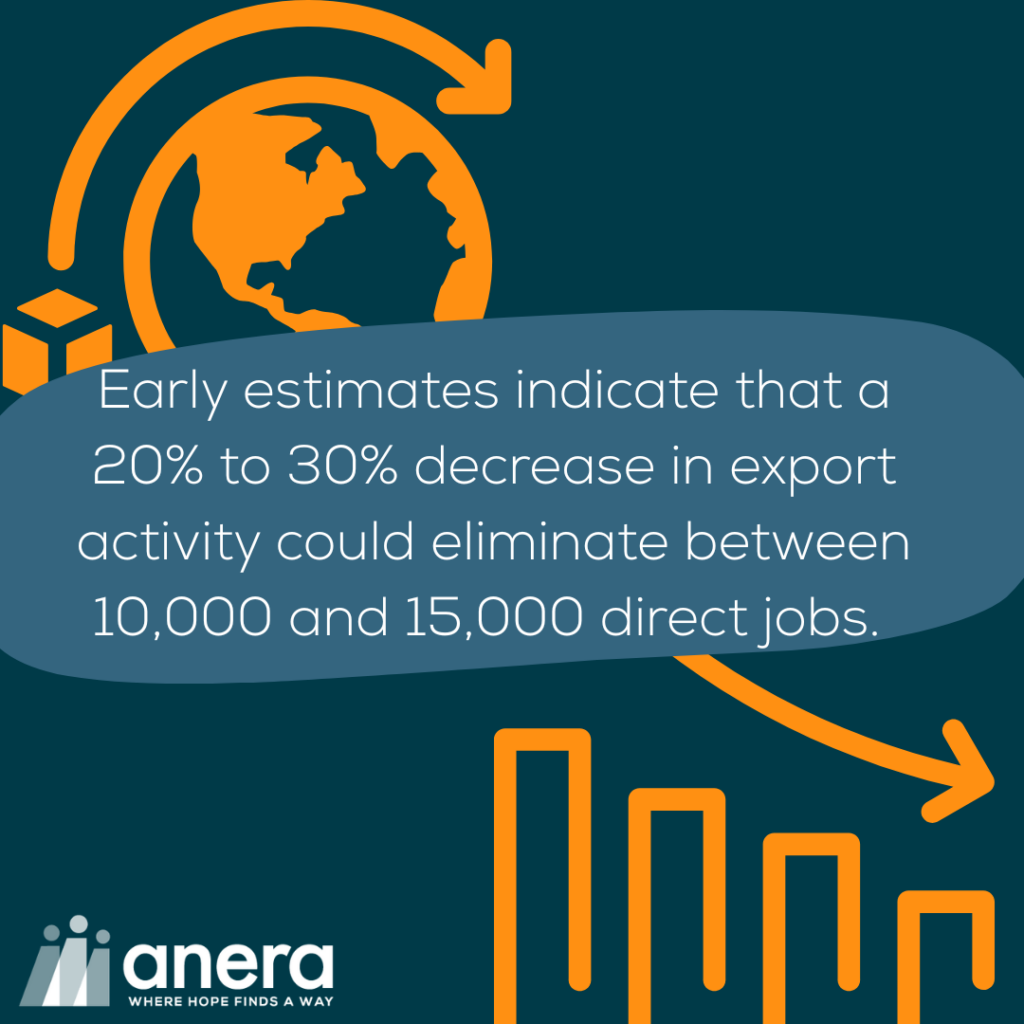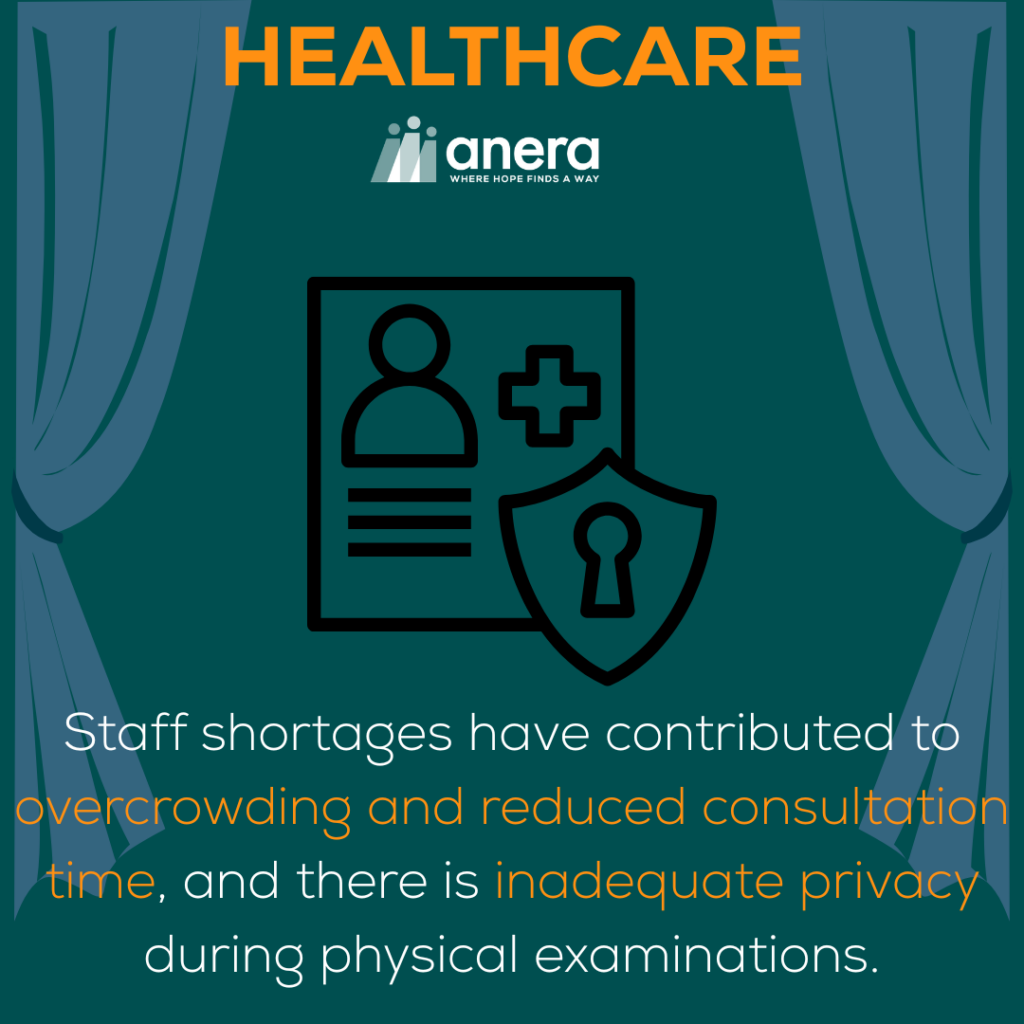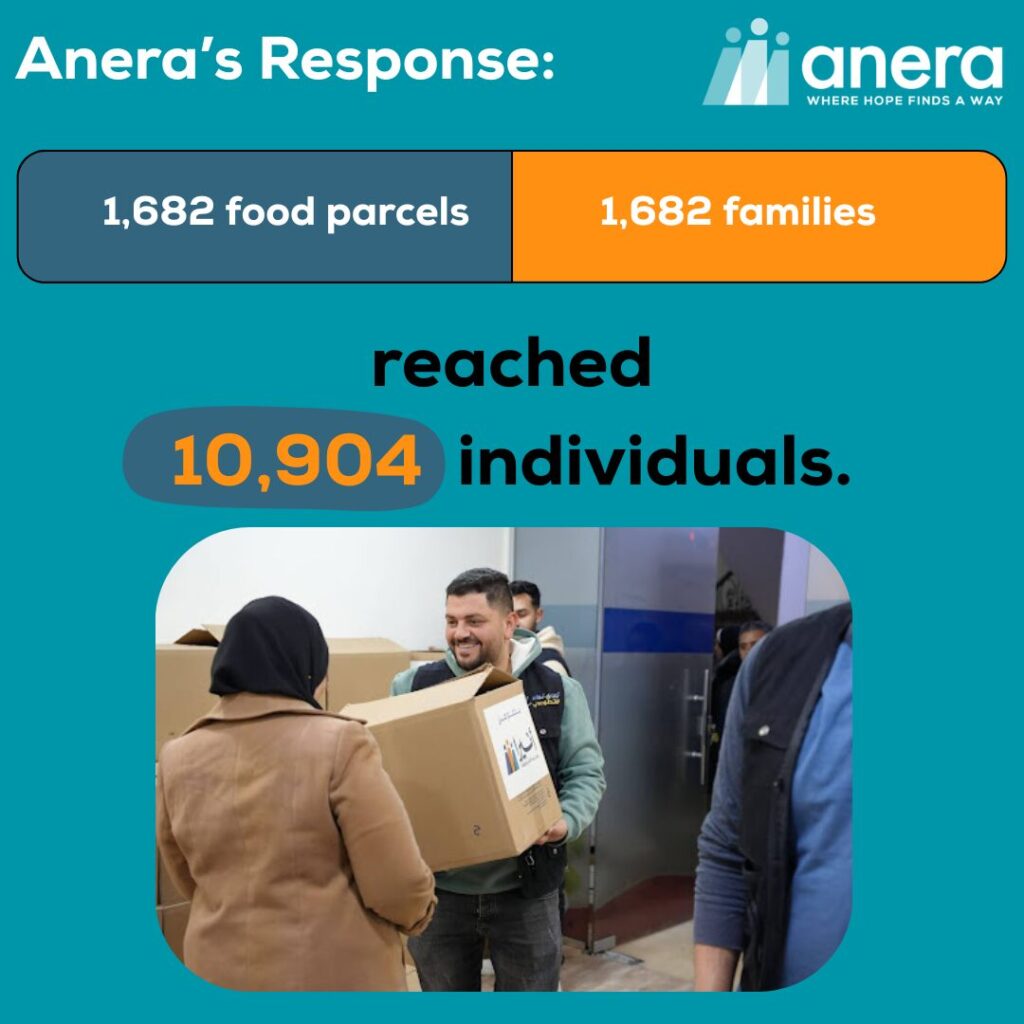Jordan Situation Report | May 2025
Posted in: Report
>>Read the full situation report
Overview
The suspension of aid through the United States Agency for International Development (USAID) has triggered widespread disruption across Jordan’s aid-dependent economy, hitting the country’s most vulnerable populations, including refugees and people with disabilities, hardest. The impact has been immediate and severe, with an estimated 35,000 Jordanian and American workers losing their jobs across public institutions, private sector organizations, contractors, and partner agencies engaged in U.S.-funded projects, according to early figures reported by the NGO sector in Jordan. Essential services once supported by USAID have been reduced or discontinued altogether.
The combination of U.S. economic deceleration and new tariffs is expected to reduce Jordanian exports, driving the current account deficit up from 5.9% of GDP in 2024 to 7.1% in 2025.
Jordan continues to face major challenges in achieving inclusive economic growth and generating sufficient employment. Over the past decade, the economy has expanded at a modest average rate of just 2.5% annually. Unemployment remains a pressing concern, reaching 22.3% in 2023, with youth unemployment alarmingly high at 46.1%.
Since July 2023, severe funding constraints forced the World Food Programme (WFP) to cut its assistance by one-third for all eligible refugees. Beginning in August, refugees living in camps saw their monthly support reduced from USD 32 to USD 21 per person. Further reductions took place in July 2024, when WFP halted monthly food assistance for another 100,000 community-based refugees following a comprehensive prioritization process. As of now, WFP supports 310,000 refugees in Jordan, all of whom receive reduced levels of assistance due to ongoing funding cuts.
Refugees in Jordan
An April report by Handicap International surveyed Syrian refugees in Jordan to assess their intentions and concerns about returning to Syria. Among 710 respondents, only 33.8% (240 individuals) expressed a willingness to return. Participants cited deep fears of the lack of security, poor infrastructure, and weak economic conditions. When asked what support would be needed to facilitate a return, financial assistance (35%) and help securing housing (29%) emerged as top priorities.


In February, UNICEF announced a $1 million contribution from the Republic of Korea to support essential services for Syrian refugees in Jordan. The funding will sustain water, sanitation, and hygiene (WASH) services, as well as strengthen child-sensitive justice and protection systems.
Economic Situation, Livelihoods & Food Security
Jordan is expected to bear a substantial burden of the newly introduced U.S. tariffs. The United States remains a vital export destination for Jordan’s industrial sector, making the country particularly vulnerable to trade disruptions. BMI also anticipates notable secondary effects on Jordan’s domestic economy. Most of the country’s key export sectors, such as textiles, jewellery, and select fertiliser products, remain subject to U.S. tariffs and exhibit relatively high demand elasticity. As a result, these industries are expected to face a sharp decline in demand, particularly in the short term.


The 20% tariff increase on exports to the U.S. will raise the price of Jordanian goods, making them less competitive compared to imports from other countries. This move is expected to place significant strain on businesses operating in Jordan, forcing some to reduce operations or close down entirely.
As a result of the World Bank operations in Jordan, 48,000 Jordanians have secured formal employment. Efforts to integrate Syrian refugees into the formal labor market have also advanced significantly: over the past four years, the number of work permits issued to refugees has doubled.
As of the fourth quarter of 2024, food insecurity among refugees in Jordan remained critically high, with 83% of host community beneficiaries and 81% of camp residents still experiencing moderate or severe food insecurity.
Health
A study published in March revealed a dramatic rise in mental health challenges in Jordan. The findings underscore a growing mental health crisis compounded by limited resources, social stigma, and ongoing regional instability. The study recommends urgent action through anti-stigma efforts, stronger integration of mental health care into health systems, and targeted prevention strategies.


Anera’s Response
Health
Since February 2025, Anera’s health program has received and distributed two major shipments in Jordan, totaling 42,456 treatments for the vulnerable population.
The first shipment, received from Direct Relief (DR), contained two critical medications. The first, Leflunomide, is an immunomodulatory agent used to treat rheumatoid arthritis. The second medication, Sevelamer, is a key item in the treatment regimen for patients suffering from chronic kidney disease, particularly those on dialysis.
The second shipment, received from International Health Partners (IHP), included antimicrobials, pain relievers, and four pallets of medications for non-communicable diseases (NCDs).
A third notable shipment marks the first-time receipt of long-acting insulin by Anera Jordan, donated by Direct Response. Part of the shipment will support SAMS’ newly established diabetes clinic, which launched in January 2025.
During a site visit to Al Bashir Hospital, a leading public healthcare institution in Jordan, confirmed the successful integration of Docetaxel, a chemotherapy medication donated by Direct Relief in November 2024. Securing this medicine allowed the hospital to resume the treatment course for patients with scheduled doses.
Food Security, Livelihood, and Social Development: Ramadan Campaign
Through Tkiyet Um Ali and Anera’s collaboration, a total of 1,682 food parcels were distributed during March 2025 to vulnerable families facing severe food insecurity. These food parcels play a critical role in alleviating the burden of food insecurity, contributing to improved well-being and productivity among family members, especially children.


The agreement between Tkiyet Um Ali and Anera also included the distribution of 4,000 hot meals as part of the Ramadan 2025 Program, “Mawa’ed Al-Rahman”. The meals were distributed on the 9th of Ramadan.
Food Security, Livelihood, and Social Development: Anera’s Roof Top Gardens Project in Jordan: Enhancing Food Security & Agricultural Resilience
Through Anera’s Rooftop Garden (RTG) project in Jordan, 79 new greenhouses were completed in Marka and Wehdat, directly benefiting 78 households and one preschool community garden. By the start of the farming season in March, all participating families received farming tools and seeds, and successfully initiated cultivation.
Additionally, 24 greenhouses from the project’s first phase underwent full maintenance. These households also received new farming tools and seeds to sustain their agricultural activities.
To expand capacity, Anera’s agriculture team conducted a week-long training in March for new beneficiaries, focusing on advanced rooftop garden management.
Food Security, Livelihood, and Social Development: Youth Entrepreneurial Pathways for Resilience Project by Abdul Aziz Al Ghurair Fund: WASH & Vocational Training for Youth Empowerment
During the reporting period, 30 youth from Jerash Refugee Camp completed 300 hours of theoretical plumbing and mechanical training and began their 400-hour practical training. Upon completion, they will earn a 6-month diploma from the Vocational Training Corporation (VTC), increasing their employability.
To support infrastructure & community awareness, 200 households received new water tanks in April, with an additional 200 slated for maintenance and cleaning in May.


Anera also offered vocational training and internships. The program combines six-month theoretical training and practical simulations with a two-month paid internship with local businesses to enhance job readiness.
Food Security, Livelihood, and Social Development: Youth for Sustainable Environment (YSE) Project: Green Initiatives in Zarqa
Under Anera’s YSE project, 30 youth across Zarqa’s directorates are receiving coaching and mentorship to develop Green Entrepreneurship Initiatives. These projects focus on environmental sustainability and best practices, with further mentorship sessions to follow.
OUR BLOG
Related
In this log, Anera provides updates on unfolding war in Palestine and our response. In some cases, additional activities may be added retroactively to the daily entries as we receive additional program reporting. Questions? See our FAQ page June 4,…
Anera's programs reuse resources that would otherwise go to waste, respect land and water by using these natural riches in the most eco-friendly ways, and replenish the beauty of the land through responsible waste and water management and the use...
